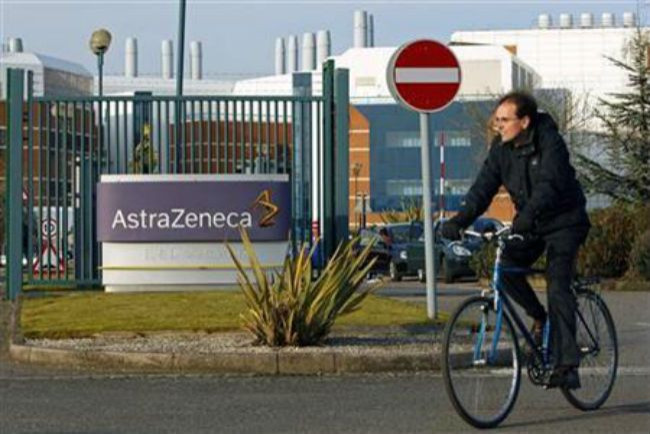
AstraZeneca Plc has poached Pascal Soriot from rival Roche Holding AG to be its new chief executive, hoping his experience with biotech drugs and dealmaking can revive a company battered by clinical trial failures and patent expiries.
Soriot, a 53-year-old French national, has been chief operating officer since 2010 of Roche's pharmaceuticals division - a business with a turnover of $34 billion, making it the same size as AstraZeneca.
He will take up his new job on October 1, AstraZeneca said on Tuesday.
Chairman Leif Johansson told Reuters this would allow him to take part in an important strategy review, which will be completed by the middle or end of the fourth quarter but will not change the group's progressive dividend policy.
Anglo-Swedish drugmaker AstraZeneca has been without a permanent CEO since June 1, following the abrupt departure of David Brennan, who was criticized by investors for failing to do enough to shore up the group as a wave of drug patents expired.
The appointment is a blow to Simon Lowth, the British-based company's chief financial officer and its interim CEO, who was also considered a candidate to take on the post permanently.
AstraZeneca said Lowth would resume his duties as finance chief and continue to serve as an executive director, although there is likely to be speculation over how long he will remain.
Navid Malik, an analyst at Cenkos Securities, said Soriot's arrival was good news for AstraZeneca and could signal a step change towards greater involvement in fast-growing biotech medicine.
"He will be looking to make significant changes, including reviewing the pipeline and doing more deals. He'll have to work fast because there's an uphill struggle now to grow sales in the face of major patent losses," Malik said.
Britain's second-biggest drugmaker has suffered repeated drug development setbacks, stoking fears about its long-term prospects given loss of exclusivity on key medicines, which exposes the group to generic competition and declining sales.
Roche, by contrast, has had a successful record of drug development and Soriot has been at the centre of that innovation as a former head of Genentech, where he oversaw the integration of the U.S. biotech unit after Roche acquired full control.
Vontobel analyst Andrew Weiss said Soriot - who worked for firms that later became part of Sanofi before joining Roche in 2006 - had strong expertise in consolidating and restructuring business, which would be valuable at AstraZeneca.
Shares in Swiss-based Roche slid 0.5 percent following news of his departure, while AstraZeneca was flat by 1020 GMT in a lower overall market for European drug stocks.
CHALLENGING JOB
Soriot acknowledged his new job would be a challenge. The entire drugs industry is under pressure from patent losses and pressure on prices, but AstraZeneca's position is worse than its rivals, reflected in the lowest valuation multiple of any Big Pharma firm.
AstraZeneca shares trade on less than eight times this year's expected earnings, against 13 times for Roche.
"No-one is blind to the challenges that confront the pharmaceutical sector and this company, but the underlying strengths of AstraZeneca in delivering on its strategy are clear," Soriot said in a statement.
Appointing Soriot is the first big decision taken by AstraZeneca's new chairman Johansson, who took over on June 1.
He said the Frenchman's experience in biotechnology and track record in integrating businesses would be key assets as AstraZeneca strived to improve financial performance.
Industry analysts believe the fundamental question for the company's new leadership team is whether to steer AstraZeneca towards bolder large-scale acquisitions or engage in further cost cutting, fuelling further big share buybacks.
In fact, Johansson - a former Volvo boss - said the choices were not that simple.
"The board and I and the new CEO will do what it takes to get AstraZeneca back on a growth path over time and, frankly, if we need to cut costs while we are doing that, well, I've lived my life making refrigerators and trucks, so I know what cost competitiveness is," he said. "It might not be a black or white decision but a mixture of things."
Recently, AstraZeneca has stepped up its pace of bolt-on dealmaking. In April it agreed to buy Ardea BioSciences for $1.26 billion, giving it a new gout drug, and two months ago it chipped in $3.5 billion for a half share in Amylin's diabetes drugs in an alliance with Bristol-Myers Squibb.
Some analysts, however, argue that bigger deals are needed to offset the decline in sales of former blockbusters. Its antipsychotic drug Seroquel lost patent protection this year, while heartburn pill Nexium and top-selling heart drug Crestor lose U.S. protection in 2014 and 2016 respectively.
The company did announce European approval on Tuesday for a new antibiotic, Zinforo, but this is not expected to become a major seller and there are few other commercially promising new medicines in its late-stage pipeline.
Moody's Investors Service, which changed its outlook on AstraZeneca's A1 debt rating last month to negative from stable, said on July 4 it would need to pursue an active acquisition strategy to offset the effects of patent expiries.
Roche said diagnostics boss Daniel O'Day would take over as head of its dominant pharma division to replace Soriot and Roland Diggelmann, head of the Asia-Pacific region in the diagnostics division, would replace O'Day.
© Thomson Reuters.



